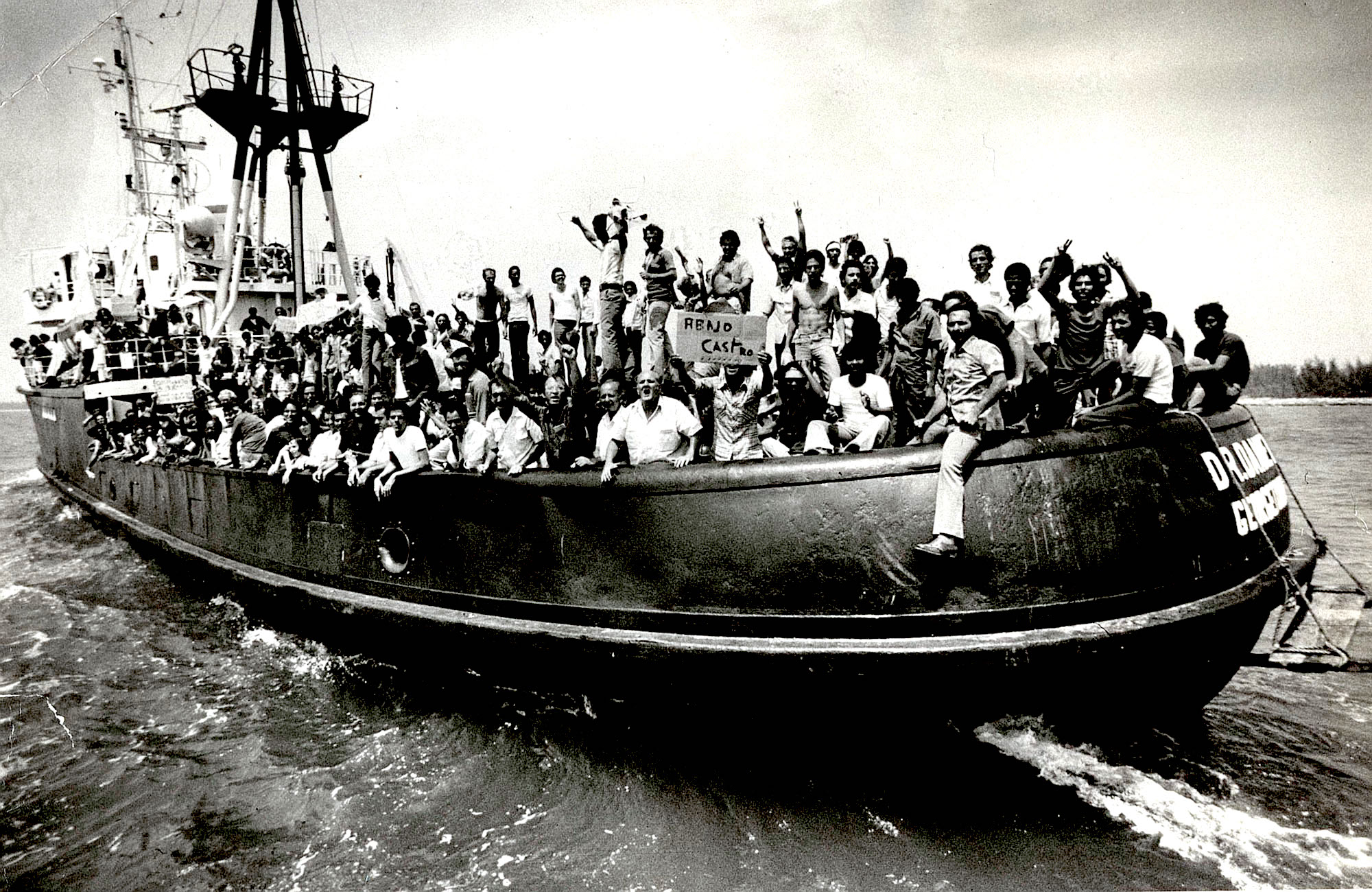Maybe Cuban refugees did hurt unskilled Miamians after all
How do refugees affect the wages of natives in the places they settle? I’ve written on the (few) studies of this effect that I’ve seen, but a new paper contradicts one of them. David Card’s 1990 study of the Mariel Boatlift, where 125,000 Cubans fled the Castro regime to settle mostly in Miami, found that there was no negative effect for unskilled natives. Card’s results suggested that the city’s existing garment and agricultural industries absorbed the extra workers and the influx did not cause downward pressure on the wages of unskilled workers already in Miami.
But a new working paper by Harvard’s George Borjas seems to undermine Card’s conclusions. Borjas looks at a particular sub-section of Miami’s unskilled workforce, high school dropouts, and compares Miami to a different set of cities to Card which, says Borjas, were more like Miami in terms of employment growth before the Boatlift took place.
When you do that, the Boatlift seems to have affected high school dropouts’ earnings very badly: they fell by between 10 and 30 percent, relative to the wages of high school graduates and college graduates. The gap between white and black workers’ wages grew substantially too – black workers’ wages fell by 20 percentage points.
The chart below shows the percentage difference in high school dropouts’ wages relative to college graduates’ wages during this period – the different ‘placebos’ show how dropouts’ wages performed in other samples of cities over the same period.
Borjas concludes that the Boatlift put significant downward pressure on the wages of natives with skills similar to those of the migrants, which may also be the case with other similar influxes of immigrants.
It’s an important paper for anybody interested in the immigration debate. But there are also some important things that should make us cautious about extrapolating too much from this.
Most notably, the relative wages of high school dropouts recover entirely by 1990 – the effect Borjas has found only holds in the short-run. And Borjas's study shows that the impact was negative for people at the bottom, but Card's conclusions about the impact on native workers more generally still seem reasonably solid.
The Mariel immigrants were ‘exogenous’ to Miami’s economy – they did not come primarily to get jobs, but to escape Cuba. So the effect might not apply at all to economic migrants from other EU countries who are coming to the UK to work. But for refugees fleeing war, Borjas’s findings might well be repeated.
David Card may reply with some objections that throw doubt on some of Borjas’s choices, and as some people have pointed out a very influential paper by Borjas from 2003 was later undermined itself by replication and slight changes to assumptions. This doesn’t mean we should be skeptical of Borjas in particular, but it is a reminder to avoid drawing firm conclusions from just a couple of studies. Whatever their findings, more research like this can only be a good thing.


